While struggling with a decade-long opiate addiction, Sean put together the pieces he needed for recovery: advocating for others, methadone treatment and finding an apartment where he could have a cup of tea undisturbed.
“I grew up on a Canadian Armed Forces base. I left home at the age of 13 to escape an abusive situation. After that, unfortunately, I was put into emergency care and I was sexually abused there. It really took away a lot of my trust in the system. I put myself through high school. After that I hitchhiked from Nova Scotia to San Francisco, and got into university a couple of years later. It was going really well. I had a security job at a bar in town, I was a disc jockey and I fell in love. I finished two years of school and my girlfriend got pregnant. Unfortunately, she drowned seven months into the pregnancy. Out of that sprung my addiction. I turned first to alcohol, then opiates. Long story short, it turned into a pretty bad addiction. I pretty well lost everything that I worked for all those years, and ended up homeless and addicted to opiates.”
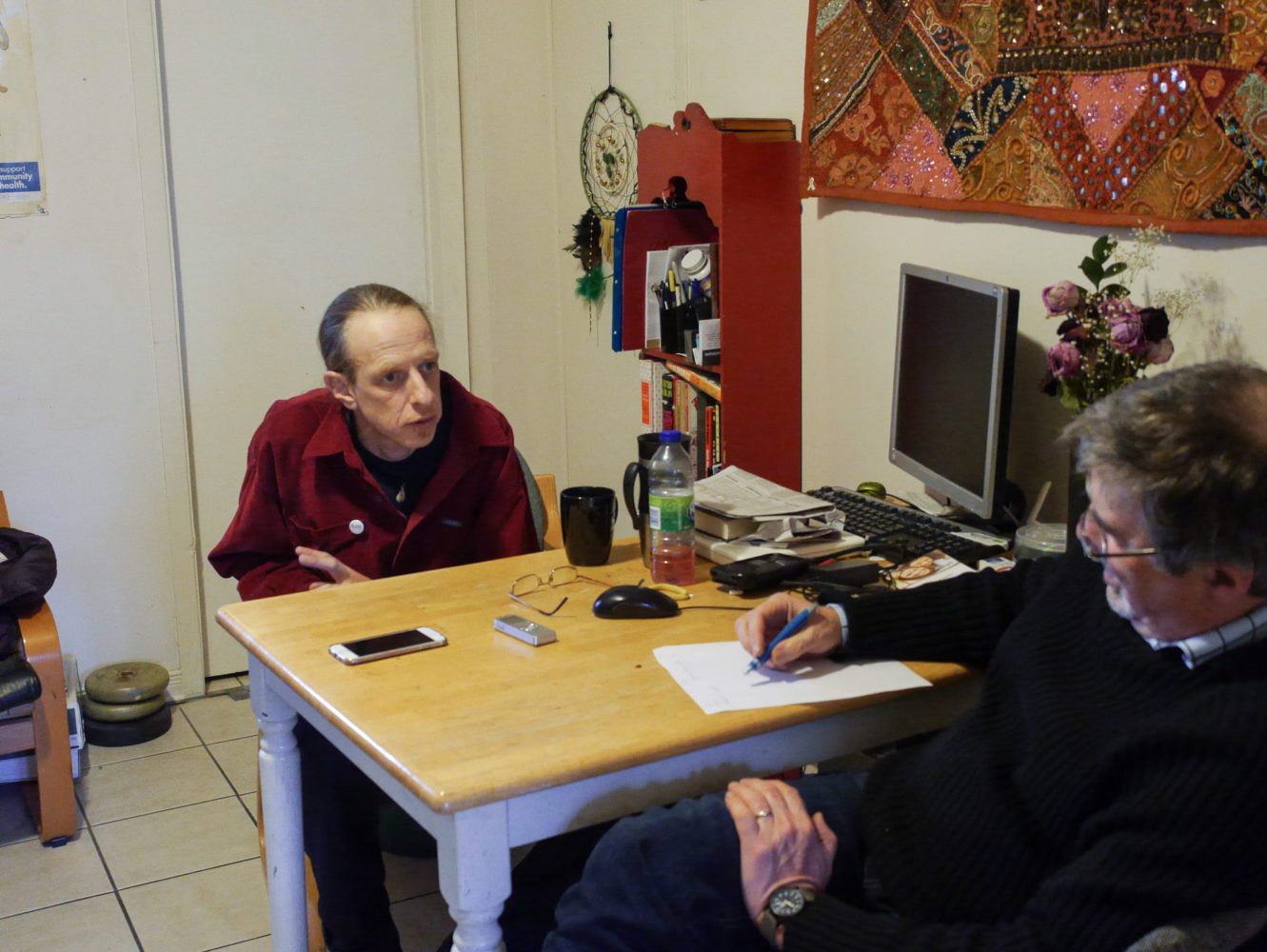
“I was in and out of shelters for about nine years all told. A huge step in improving my health was being housed. Initially, when I got out of one of the shelters, they put me into housing where there was still a lot of drug use going on. Every day and on every floor, there was a dealer. I eventually got back into drugs and lost my housing.”
“So the next time I decided to do it myself. To pay my rent, I delivered flyers for six cents a flyer. They were those really annoying ones you have to hang on doorknobs. I lived in a really modest place. Where I am now is pretty modest, but that was pretty well a closet. I lived there for three years and it gave me privacy and safety and security. That was really huge.”
It’s the small things you take for granted when you don’t have them.
“Like being able to wake up and have a cup of tea or read a book in the afternoon.
“Just small things like that. Getting a taste of that normalcy again really drove me to want more of it. So I started exercising and doing a lot more self-care. Other than buying drugs, I’d buy clothes or books, or…I’m a huge fan of punk rock music. I play a lot of instruments, albeit badly. They are just little, I call them ‘tools.’ I just built up enough tools in my tool box so I was able to start fixing myself. It’s still a daily struggle.”
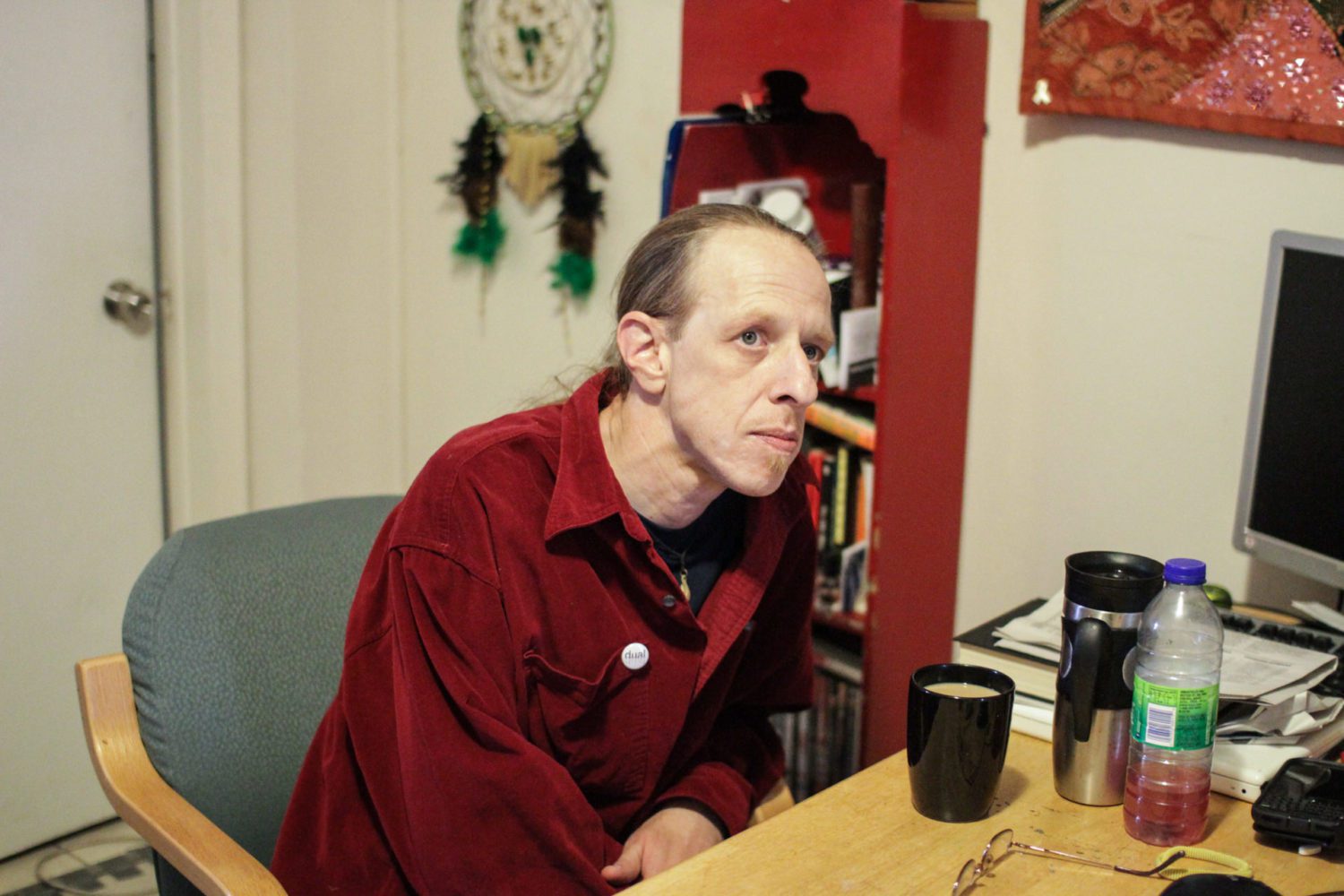
“Another really important step for me was going on methadone. My methadone practitioner was a fantastic doctor. He never judged me. He always believed in me. I didn’t even necessarily deserve the faith he put in me. There were times I would lie to him, try to get extra drugs, or I just made up stuff about going away so that I could get my drugs in advance. But he never ever judged me, and I was able to eventually reward his faith in me.”
“Your priorities are really messed up when you’re using. I had this infection on my elbow. It was very deep, and it was basically six weeks of antibiotics. But I was more worried about getting the drugs I needed to get through the day than my health care. I can’t believe I was like that, but I was.”
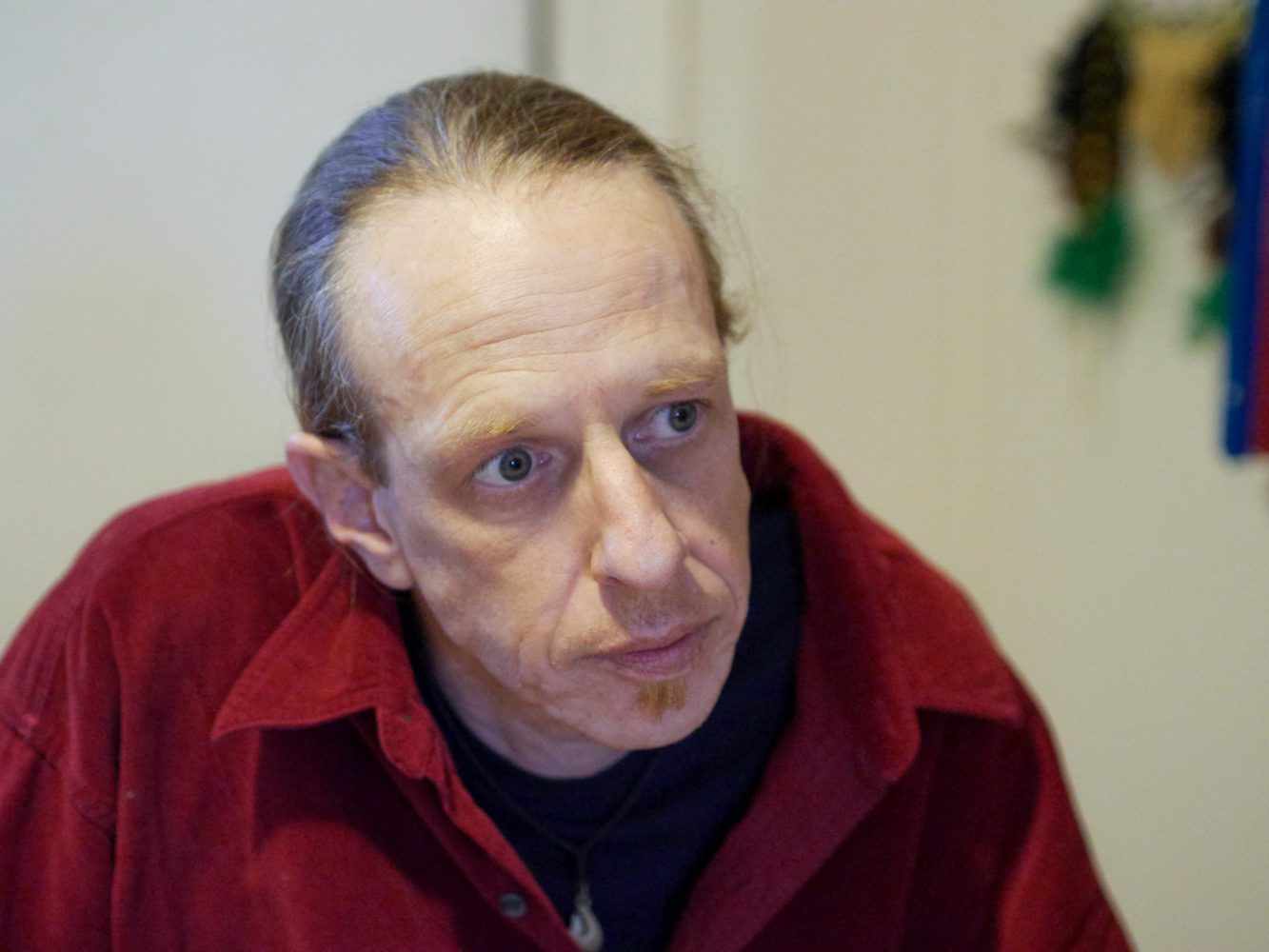
“There are some hospitals and clinics in this city that are really good, and some that aren’t very good towards people that use drugs. Some of the things that they said to me in regards to the infections I had when I was using IV drugs – they were just horrible.”
“The first time I went to get a blood test to start on methadone, the nurse or the technician was having problems finding a vein.”
She asked me how I could do this to myself. I was embarrassed enough as it was, I really didn’t need her saying that!
“Another time, a doctor was lancing and draining an infection I had without giving me an anesthetic. The doctor actually hit me. He squeezed my abscess and some of it got underneath his mask. He felt like that was somehow my fault so he actually hit me in my side while I was lying down! It was a horrible, horrible experience. I wasn’t able to go to that hospital for a couple of years after that. I know people to this day, if they are picked up by an ambulance and the ambulance says it’s going there, they will not go. Or if they’ve got an appointment there, they just absolutely refuse to go.”
“Even to this day, I don’t wear T-shirts in the summer because of the stigma around injecting drugs. Nobody wants to stick a needle in their arm! I saw it as a form of self-harm, and I beat myself up enough. So I didn’t need people, whether it was on the streets or in the health care system, to further judge me or stigmatize me. Now, I’ll stick up for myself and say, ‘This is what I went through, and I was able to heal. Your judgement on me is not helpful at all.’”
“But there were some really positive people too, like my doctor’s nurse who took blood from me. She was very patient and tender, and didn’t put me in a position where I felt bad about myself.”
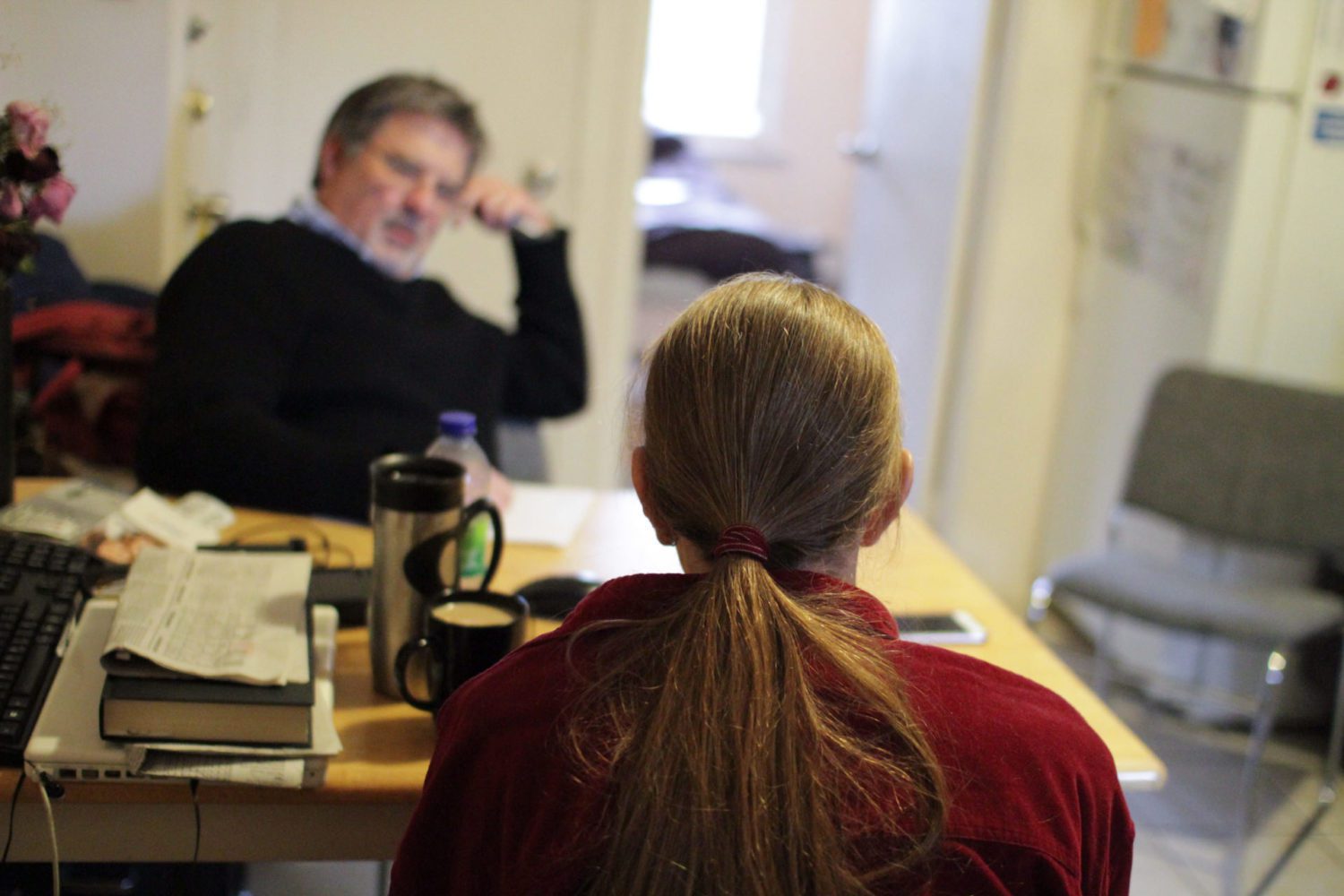
“I am now working as a peer support worker. I try to provide any type of support that’s needed. That might mean accompanying someone to a medical appointment or a court date. They get frustrated. Or they have cognitive difficulties and they can’t remember the date or the details they’re supposed to provide.”
A lot of people have a hard time navigating the system.
“I know a lot of the people from my time in the shelter or from the streets. I have an advantage because I have used a lot of the services that I am taking people to. I know the people that are performing the services, so I can say, ‘This person may not be the best to go see.’ Or, ‘This hospital is good for this and not so much for that.’”
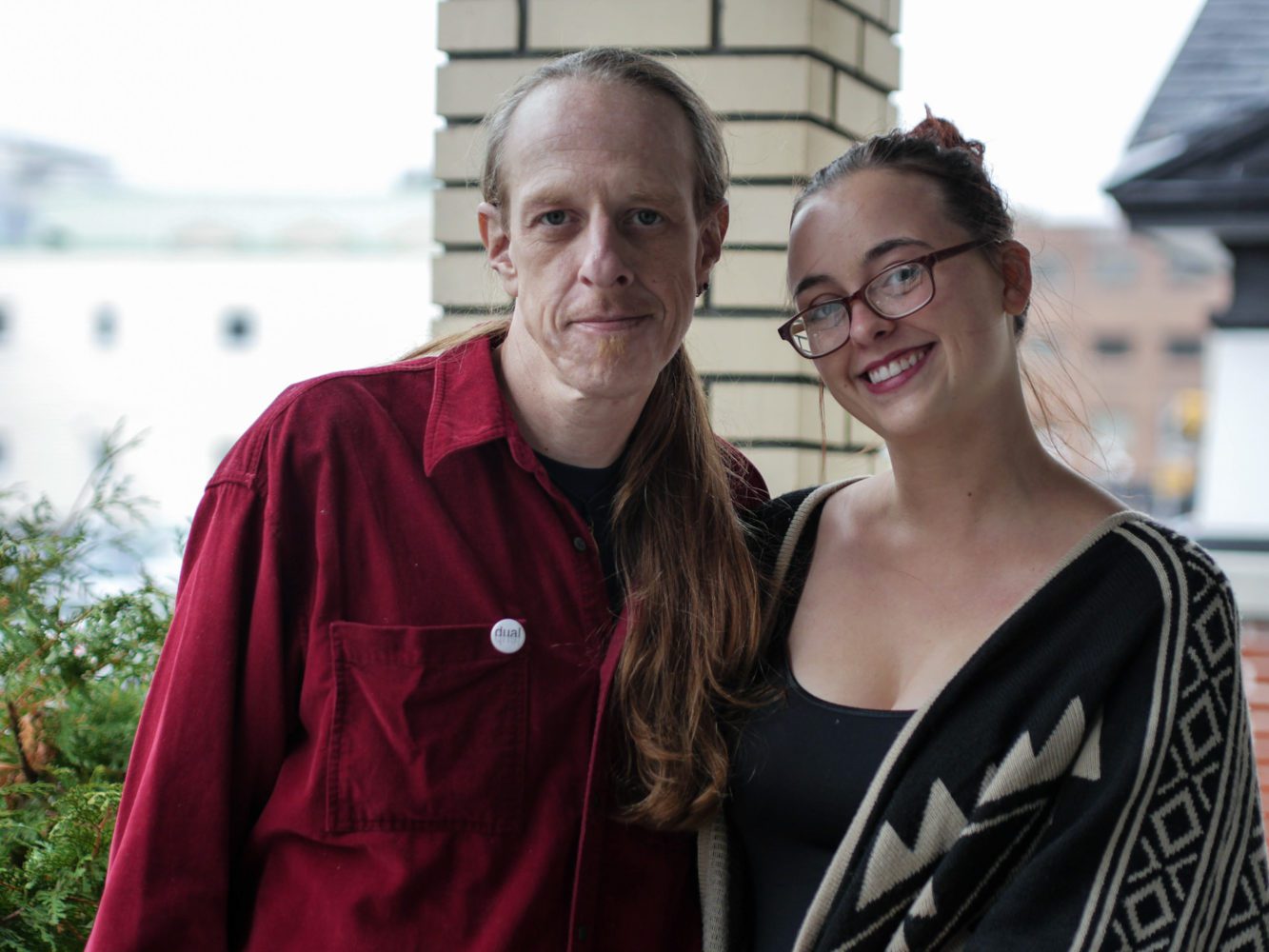
“As I got healthier, I started to do a little bit of advocacy for people who use drugs. I founded a non-profit called Drug Users Advocacy League, or DUAL. It’s basically to provide a voice for people that are marginalized drug users.”
“I saw this YouTube video about Drug Users Memorial Day in July, and it really inspired me. It happens in different countries, and I thought it would be kind of nice if we had something similar up here. So, we had an event in a park. There were maybe 12 people there the first year. But there was enough of a really positive energy that I wanted to formalize it. We are now incorporated and in our fifth year and 150 people attended the last memorial.”
“The further I went into the advocacy, the healthier I was able to live. The healthier I was able to live, the more I was able to do advocacy. So, it wasn’t just harm reduction that saved my life, but harm reduction and advocacy.”
“Do you worry that things might regress?”
I know what I survived, and I don’t think I would survive it again.
“I wouldn’t be able to get back into the whole world of addiction. I’ve been there; I’ve done that. There’s this phrase I use all the time, ‘Sick and tired of being sick and tired.’ I am just not going to do that to myself ever again.”
“I’ve been in recovery for four years now. I am working, and in love. I have a partner who I adore who helps me in every regard. I have a job I love and I think I am making an impact, bettering my community. So, yeah, I am fortunate! It’s been quite the turnaround, I guess.”


The comments section is closed.